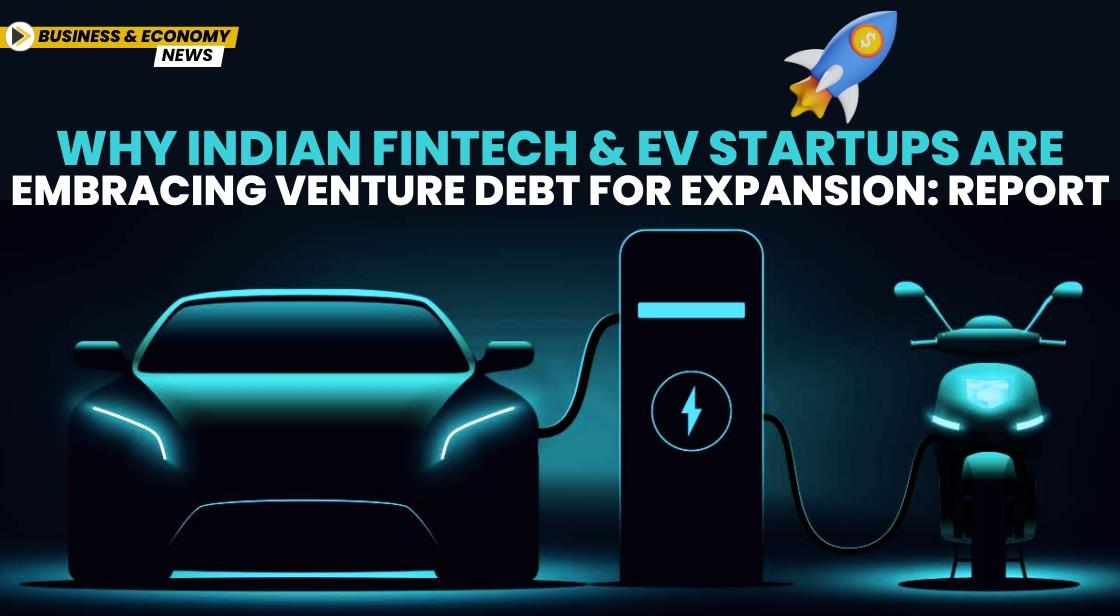Why Indian Fintech and EV Startups are Embracing Venture Debt for Expansion: Report

News Synopsis
The venture debt market in India is witnessing a significant rise, particularly in high-growth sectors such as fintech and electric vehicles (EVs). This growth trend mirrors the initial phase of venture capital, marking a new chapter for alternative financing in India’s startup ecosystem. According to a recent report by global investment firm Lighthouse Canton, venture debt has become a critical tool for Indian startups, particularly founders who aim to bridge financing gaps while retaining equity.
The report highlights a notable shift among Indian entrepreneurs who are turning to venture debt as an alternative to equity funding to minimize equity dilution and maintain ownership control. "India’s startup ecosystem holds immense potential, and the growth of venture debt funding is playing a pivotal role in driving its development," commented Sanket Sinha, Managing Director and Global Head of Asset Management at Lighthouse Canton.
Rising Demand for Non-Dilutive Capital
One of the key reasons for the increasing popularity of venture debt in India is its non-dilutive nature, which allows founders to avoid reducing their equity stake. According to the report, around 40 percent of founders chose venture debt to prevent dilution, while 30 percent are attracted to the flexibility in repayment options that venture debt offers over traditional debt and equity funding. This is particularly appealing in fast-growing, capital-intensive sectors where startups face unique funding challenges.
Growing Role of Venture Debt in India’s Booming Fintech Sector
The Indian fintech industry, which has emerged as the third-largest globally, remains a primary driver for venture debt adoption. Innovations like the Unified Payments Interface (UPI) have propelled India’s fintech landscape forward, attracting startups and investors alike. In this dynamic environment, venture debt has become instrumental for fintech startups that need support for cash flow management, onward lending activities, and scaling operations.
Venture Debt: A Crucial Financing Tool for the Electric Vehicle Sector
The report by global investment firm Lighthouse Canton also sheds light on the pivotal role of venture debt in the expansion of India’s electric vehicle sector, a capital-intensive industry with unique financial needs. Approximately 67 percent of EV startups now rely on venture debt for more than half of their financing. With traditional lenders such as banks often viewing the EV sector as a high-risk investment, venture debt has emerged as a viable alternative, providing startups with essential capital to sustain growth and innovation.
“We believe this mode of funding will be essential in fostering innovation and empowering startups, ultimately supporting sustainable growth across the nation’s dynamic business landscape,” added Sanket Sinha of Lighthouse Canton, reinforcing the critical role of venture debt in India’s evolving startup ecosystem.
Conclusion: The Strategic Importance of Venture Debt in India’s Startup Ecosystem
The increasing adoption of venture debt in India’s startup ecosystem signals a pivotal shift in how emerging companies in high-growth sectors like fintech and electric vehicles (EVs) are navigating their financing needs. Unlike traditional debt or equity funding, venture debt offers non-dilutive capital, allowing founders to retain ownership and control while securing essential growth capital. This approach has proven invaluable, especially as equity funding becomes more selective in the current economic climate.
In the fintech sector, which has positioned India as the third-largest market globally, venture debt is helping startups manage cash flows and enhance operational efficiency as they expand rapidly. This is particularly vital in a market driven by innovations like the Unified Payments Interface (UPI), where maintaining liquidity to support onward lending and scaling is critical.
By providing a reliable funding alternative, venture debt not only supports the scaling of fintech startups but also helps bolster the broader financial technology landscape that underpins India’s digital economy.
Similarly, in the EV sector—marked by high capital intensity and unique risks—venture debt serves as a financial lifeline. Traditional lenders often consider EV startups too risky, stalling growth for companies working to accelerate India’s transition to sustainable transportation. Venture debt fills this gap by enabling these startups to access the funds needed for infrastructure, research, and development, even in the face of financial roadblocks.
According to Lighthouse Canton’s report, nearly 67 percent of EV startups now rely on venture debt for over half of their funding needs, underscoring its growing relevance in this vital sector.
You May Like









